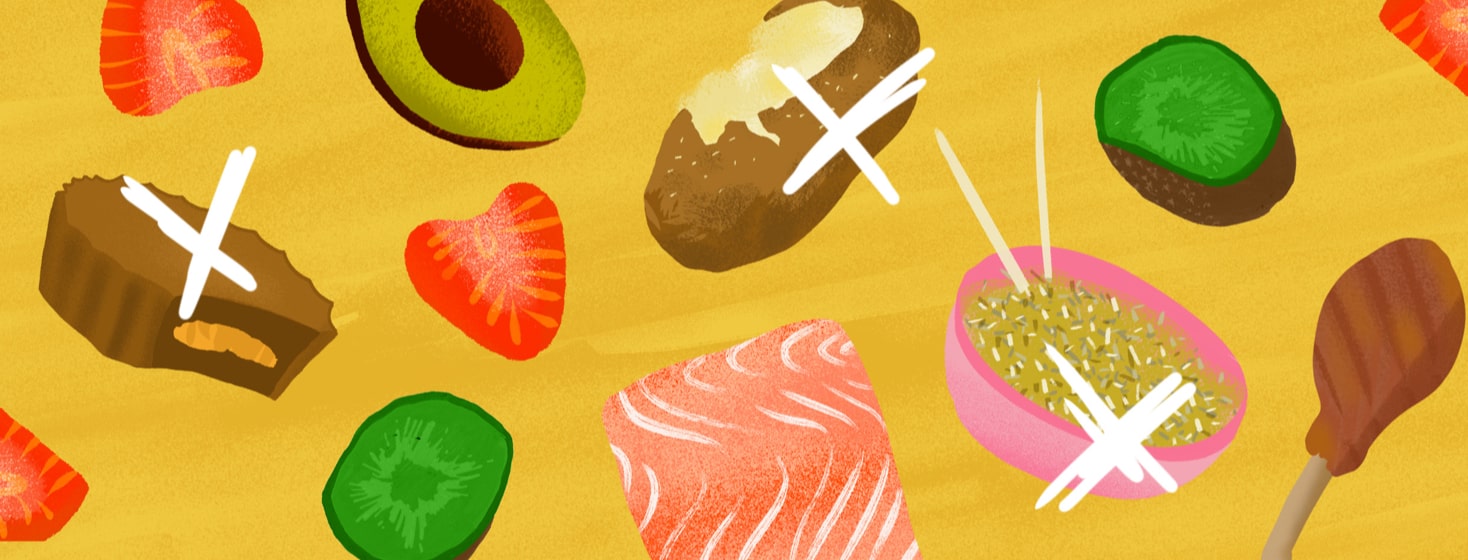What Is the Specific Carbohydrate Diet?
For people with Crohn's disease and ulcerative colitis – 2 forms of inflammatory bowel disease (IBD) – eating a restricted diet may help manage symptoms. The Specific Carbohydrate Diet (SCD) is 1 of several diets that may be recommended for people who live with IBD.1
The primary goal of the SCD is to reduce inflammation in people with IBD. But it is important to note that there is no single diet that is effective for everyone with IBD. A diet plan that works for someone else might not work for you.1,2
How does the Specific Carbohydrate Diet work?
The SCD is a way of eating that limits or totally omits certain carbohydrates (also called carbs). A carbohydrate is a macronutrient found naturally in food that gives your body energy. The 3 main types of carbs are:1,3
- Sugars – Also known as simple carbs, these are found in fruits, vegetables, and dairy but can also be added to things like desserts, sodas, and sweets.
- Starches – Also known as complex carbs, these are found in grains like bread and pasta as well as starchy vegetables like potatoes and corn.
- Fiber – A complex carb, fiber is a crucial element of a healthy diet. It is found in whole grains, fruits and vegetables, beans, nuts, and seeds.
The SCD limits or totally excludes:1
- Grains
- Refined sugars
- Artificial sweeteners
- Processed foods and processed meats
- Certain starchy vegetables
- Lactose (found in dairy products)
- Soy
Foods to eat and foods to avoid
Foods you can safely eat on the SCD include:1
- Fruits
- Vegetables
- Fish
- Meat
- Homemade yogurt
- Aged cheeses
Foods you should avoid on the SCD include:1
- Grains such as bread, pasta, noodles, crackers, and cereals
- Refined and processed foods
- Milk and soft cheeses
- Candy, desserts, and other sweets
- Sodas and other artificially sweetened drinks
- Potatoes
- Corn
- Soy
The SCD promotes eating whole, natural foods. This means you will likely need to cook more meals at home and limit prepared and pre-packaged foods.1
How can the SCD help people with Crohn's or UC?
Experts think that undigested starches in the stomach from eating carbs may change the mix of bacteria and microorganisms in your gut (called your microbiome) and cause inflammation. Research shows that by reducing or completely eliminating certain carbs from your diet, your inflammation and IBD symptoms may improve.1,2
A 2020 clinical trial found that all 18 participants with mild to moderate Crohn's disease achieved complete remission after following the SCD for 12 weeks. Other studies have seen similar results. In fact, the more restrictive the diet, the more effective it seems to be at reducing inflammation.2,4
What are the drawbacks of the Specific Carbohydrate Diet?
The SCD is very restrictive and eliminates many different food groups. For this reason, it can be challenging to follow for a long period of time. In addition, eating this way can lead to low levels of essential vitamins and minerals your body needs, including:1,4
- Calcium
- Folate
- Thiamine
- Vitamins A, B6, C, and D
You will need to stay in close contact with your healthcare team to ensure you are getting the right amount of vitamins and minerals on this diet.1
More research is needed
While results from these studies are promising, these studies were quite small and relied mostly on theory rather than evidence. Experts agree that more research is needed.2,4
Certain diets like the SCD may not work for everyone with IBD. Before changing your diet to help manage your IBD, talk with your doctor. Together, you can find a plan that works best for you. You may also want to consult a dietitian to help you create a diet plan.1,4

Join the conversation